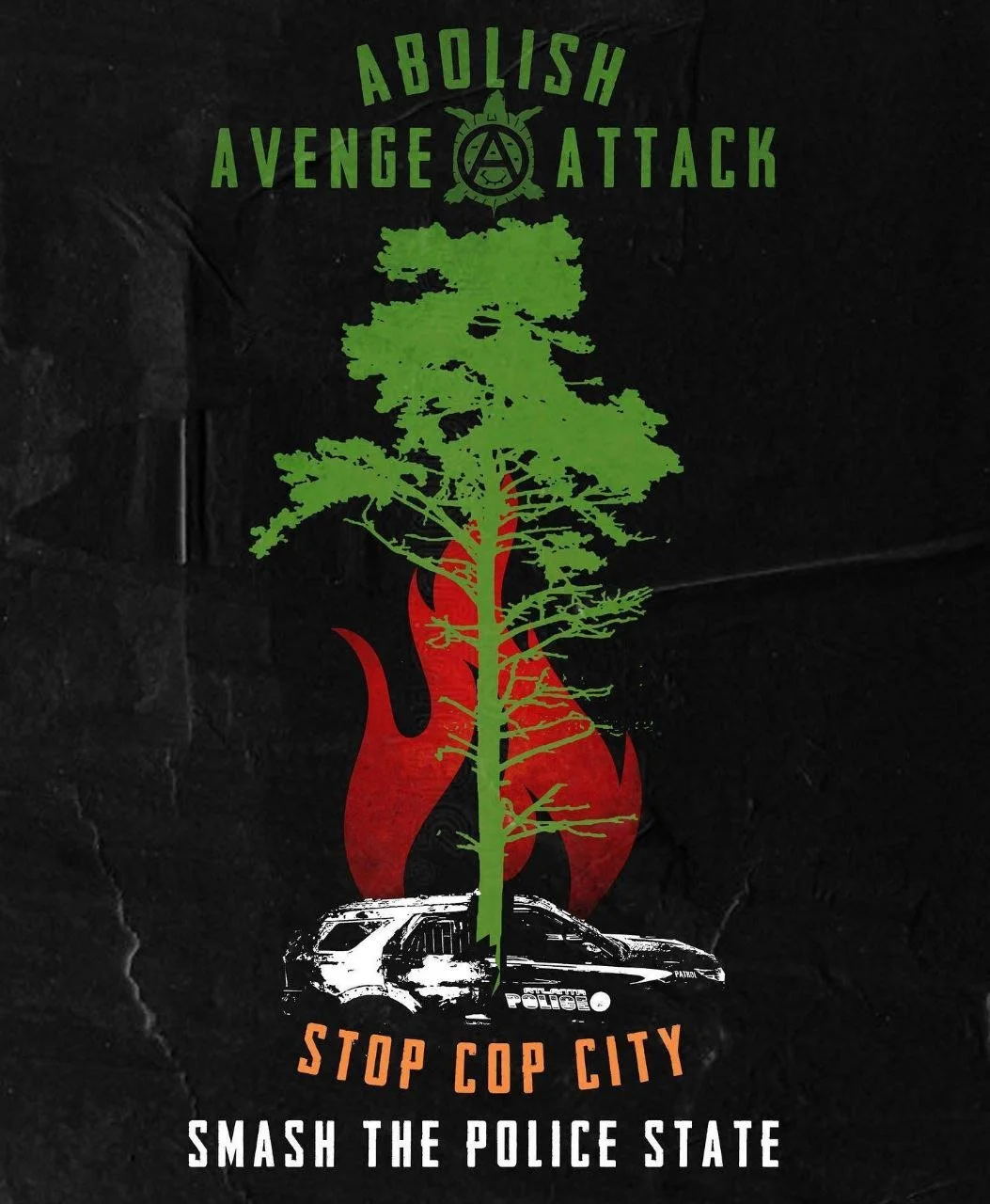Stop Cop City Movement Grows Despite RICO Charges
Executive Summary
The movement to stop the construction of Atlanta’s controversial police training facility, dubbed “Cop City,” continues to gain momentum despite significant state repression, including mass arrests, terrorism charges, and sweeping RICO indictments. Activists, journalists, and civil rights advocates are intensifying efforts to challenge both the facility itself and the broader systems of power enabling it. From federal lawsuits and transparency battles to artistic tributes and militant zines, the opposition is evolving — expanding nationwide and adapting its tactics to resist what participants frame as a militarized, anti-democratic future.
Analysis
The Cop City controversy, ignited by the police killing of forest defender Manuel “Tortuguita” Paez Terán in 2023, remains one of the most polarizing flashpoints of resistance in the U.S. The recent release of Leonard Peltier, a long-imprisoned Native resistance figure, was quickly followed by demands for the release of “Stop Cop City” activists and other political prisoners, underlining the continuity many see between historic Indigenous struggles and modern anti-policing movements.
A zine published by CrimethInc. documents and glorifies years of sabotage, vandalism, and direct action tied to the movement. It explicitly advocates for decentralized tactics, critiques liberal protest models, and connects the fight to global resistance efforts — from Gaza solidarity to animal liberation. While critics decry this rhetoric as dangerous, supporters view it as a blueprint for resilience amid escalating repression.
Meanwhile, legal resistance has expanded. In March, a federal lawsuit accused Atlanta police of systematically targeting activists like Jamie Marsicano with false arrests and politically motivated charges. That case adds to a growing list of civil suits against the city and state. Another potentially landmark case now sits in a Georgia court, where the Atlanta Community Press Collective is suing the Atlanta Police Foundation for violating open records laws. If successful, it could pierce the veil of secrecy surrounding the nonprofit’s role in funding and managing Cop City’s construction.
Opponents argue that Cop City is not just a local issue, but a prototype for militarized policing nationwide. Plans for similar facilities in cities like Chicago and Baltimore are reportedly underway. Activists are coordinating efforts to stop them preemptively, even as the Atlanta facility nears completion. A new podcast, We Came to the Forest, aims to chronicle this movement from its origins to the current legal and political battles, reinforcing the narrative that Cop City’s legacy is far from settled.


